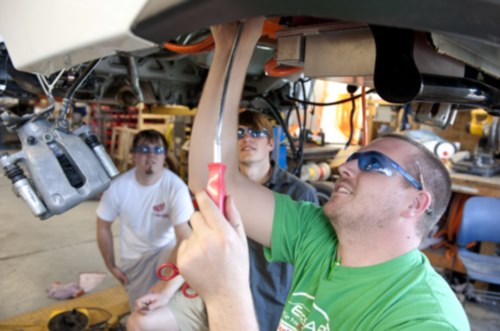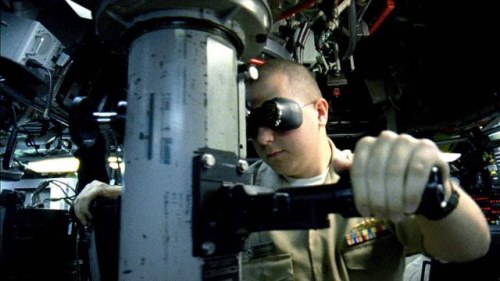A solid education is pretty much a requirement for almost any decent job these days, but what are you actually learning when you’re in school that’s going to benefit you once you’re in the real work environment?

Massachusetts Institute of Technology.
As you look back at your engineering education or even look ahead at the education before you, do you ever wonder if it has prepared you for everything you’re going to encounter in your career?
Here’s what engineers and engineering professors have to say about what college really does for you and what it’s lacking.
1. It doesn’t teach you how to be a better communicator
Martin Brooke, Associate Professor, Duke University Department of Electrical and Computer Engineering:
I needed to be a better communicator. Well-rounded engineers who can communicate their passion and ideas are really who make things happen.
2. It does teach you how to actually learn
Carter Burks, Senior Electrical Engineer, Lockheed Martin Missiles and Fire Control:
Engineering degrees only give you the basic tools needed to problem-solve. They teach you the thought process required.
George Swenson, Professor of Electrical and Computer Engineering, University of Illinois:
Its main benefit was to habituate me to diligent study.
Amanda Foo, Propulsion Manager, Lockheed Martin:
I believe education taught me how to “‘learn,” which is very important. Without that skillset it is hard to be successful in life.
3. It does provide you with an initial degree, a jumping-off point
Tom Byrd, Lockheed Martin Fellow, Lockheed Martin Missiles and Fire Control:
The initial degree is only the starting point. It gave me the foundation, but it doesn’t stop there.
Indira Negi, New Devices Group, Intel Corporation:
It arms you with the building blocks that you need to use, but how you put them together is something you learn by doing.

Virginia Tech Students at work.
4. It does teach you to work with others in groups
Gisele Bennett, Director of Electro-Optical Systems Laboratory, Georgia Tech:
Now engineering programs require projects and team efforts, which is closer to how people will work.
5. It does provide technical skills needed for your career
David Brady, Professor, Imaging and Spectroscopy, Duke University:
My education gave me the technical skills needed.
Abigail Kuchan, Lockheed Martin Engineer:
College really gave me a taste of all engineering disciplines.
6. It doesn’t provide real-world experience
Jatin Mehta, Senior Electrical Engineer, Lockheed Martin Missiles and Fire Control:
There is no school that can prepare you for what you learn day-in and day-out working on diverse projects and coming up with creative ideas to solve challenging problems.
Jeremiah Schneider, Electronics Engineer Staff, Lockheed Martin Space Systems Company:
You learn a lot of book knowledge while you’re in college, which is definitely needed, but it isn’t until you start your career that the real education starts.
Hal Babb, Lockheed Martin Fellow:
The actual high school and university experiences were inadequate to develop major expertise in technical subjects, but the process of “learning to learn” was developed in that environment.
7. It doesn’t account for changes in technology
Phil Cheng, Systems Engineer, Lockheed Martin :
Technology changes, your job might demand you learn new skills and there are simply some aspects of your work that are not taught in schools.
To combat this:
Establish a mentor or mentors who can guide you through learning the new things you will need to know to do well at your job.

Navy careers, engineer at work.
Don’t get too discouraged. Not everyone even gets a job in the field they intended to.
“If you ask about the people, facilitating skills, or the content of my day-to-day job, they were completely unrelated to my degree,” said Amanda Foo, Propulsion Manager at Lockheed Martin.
Did your engineering education prepare you for everything you’ve encountered in your career? Tell us below.
Advertisement
Learn more about Electronic Products Magazine





